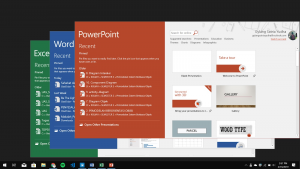
IRS trust fund penalty is a penalty that can be imposed on employers who fail to properly remit the payroll taxes withheld from their employee’s wages to the government. The penalty is assessed against individuals considered “responsible persons” for the company’s finances, such as business owners or officers. The penalty is equal to the amount of unpaid payroll taxes, and it can be quite significant.
This penalty is considered the most serious penalty IRS can assess on a business. But on the bright side, there are IRS Trust Fund Penalty Solutions such as IRS Offer and Compromise. A former IRS agent would be able to advise you on a solution that is customizable to your specific problem.
In this blog, we will discuss about IRS Trust Fund Penalty in detail and understand different options for relief available for your rescue.
Let’s start with the basics,
What are trust Funds?
Trust fund taxes are taxes that are collected by employers on behalf of their employees and held in trust until they are paid to the government. These taxes include federal income tax, Social Security tax, and Medicare tax.
The term “trust fund” refers to the fact that the employer holds the taxes in trust until they are paid to the government. Employers are required by law to withhold these taxes from their employee’s paychecks and to pay them to the government on a regular basis.
Trust fund taxes are considered a priority debt by the government, meaning that they must be paid before other debts are paid.
IRS Trust Fund Penalty
Failure to pay trust fund taxes results in an IRS trust fund recovery penalty, which is a personal liability that can be imposed on individuals who are considered responsible for paying the taxes. This can be,
- Business owners
- Financial Advisor
- A partnership member or employee
- Nonprofit board of trustee members
- Third-party members and more
What is the cost of the Trust Fund Recovery Penalty?
The Trust Fund Recovery Penalty amount matches the amount of trust fund taxes that haven’t been paid. In the aforementioned example, if you fail to pay the $100 in trust fund taxes, the penalty will be $100, and the total due amount will be $200. This penalty is one of the most substantial penalties levied by the IRS.
Individuals deemed responsible for unpaid trust fund taxes may face IRS enforcement, including the seizure of personal assets, not just businesses.
What to Expect If You Have Unpaid Trust Fund Taxes?
If you have unpaid trust fund taxes, you can expect to face significant penalties and enforcement action by the Internal Revenue Service (IRS). The Trust Fund Recovery Penalty (TFRP) will be levied against responsible individuals who failed to pay these taxes, and the penalty amount will match the unpaid taxes.
When the IRS discovers that a business is not fulfilling its trust fund tax obligations, a revenue officer will investigate to identify the individual responsibly. To do so, the officer will seek information from the company, such as bank statements, canceled checks, access details for online accounts, partnership agreements, and articles of incorporation. These documents will help the officer determine who is accountable for paying the taxes that have not been paid.
IRS Notifications of Trust Fund Recovery Penalties
The IRS will typically notify individuals of Trust Fund Recovery Penalties (TFRPs) through various means. In most cases, the IRS will send a Letter 1153, which is also known as the Trust Fund Recovery Penalty Letter. This letter explains the penalty, how much is owed, and the reason for the penalty.
The IRS may also initiate contact with individuals by phone, in person, or through a third-party, such as a tax professional or attorney. The IRS will typically request that individuals respond to the notification promptly and provide information on their tax liability, payment options, and appeal rights.
It’s essential to take IRS notifications of TFRPs seriously and respond promptly to avoid further penalties and enforcement action. Working with a formal IRS agent who specializes in TFRPs can help individuals understand their options and develop a plan to address their tax liability.
Understanding Options for IRS Trust Fund Penalty Solutions
If you or your business have been assessed a Trust Fund Recovery Penalty (TFRP) by the IRS, it’s crucial to understand your options for resolving the issue. Such as, IRS offer and compromise, Installment plans, and more.
1. Installment Plans
An installment plan is one option available for individuals or businesses who have been assessed a Trust Fund Recovery Penalty (TFRP) by the IRS. An installment plan allows the taxpayer to pay off the penalty amount over time rather than in one lump sum.
To set up an installment plan for TFRP, the taxpayer must first file all required tax returns and be current on all other tax payments. Once the taxpayer is eligible, they can contact the IRS to request an installment plan. The IRS will evaluate the taxpayer’s financial situation to determine the amount and frequency of payments.
It’s important to note that interest and penalties will continue to accrue on the outstanding balance during the installment period. Additionally, the taxpayer must make all payments on time, or they risk defaulting on the plan and facing additional penalties and enforcement action.
Working with a former IRS agent who specializes in TFRP cases can help individuals determine if an installment plan is a viable option for their situation. They can assist in negotiating the terms of the plan with the IRS and ensure that the taxpayer stays compliant with all payment obligations.
2. IRS Offer and Compromise
An IRS Offer in Compromise (OIC) is another option available to individuals or businesses who have been assessed a Trust Fund Recovery Penalty (TFRP) by the IRS. An OIC is an agreement between the taxpayer and the IRS to settle the tax debt for less than the full amount owed.
To qualify for an OIC, the taxpayer must demonstrate to the IRS that they are unable to pay the full amount of the TFRP, either in a lump sum or through an installment plan, and that accepting the OIC is in the best interest of the government. The IRS will evaluate the taxpayer’s income, assets, expenses, and future earning potential to determine if they qualify for an OIC.
3. Currently not collectible status
If you are unable to pay anything at the moment, you can apply for a currently not collectible (CNC) status. This requires disclosing your complete financial information, and the IRS will periodically review your situation to check for any changes every two years.
How can a former IRS agent assist you in IRS Trust Fund Penalty Solutions?
Seeking advice from a former IRS agent can be crucial when dealing with IRS Trust Fund Penalty. A former IRS agent can provide expert guidance, advice, and representation throughout the entire IRS Trust Fund Penalty settlement process, ensuring that taxpayers receive the best possible outcome for their situation. There are various other reasons to go for the assistance of a former IRS agent, such as,
1. Inside scoop on the inner working of the system:
A former IRS agent is familiar with IRS procedures and can help you navigate the complex process of resolving TFRP issues. They understand the IRS’s collection methods and can help you develop a strategy to resolve the issue effectively.
2. Communication with the IRS:
A former IRS agent can communicate with the IRS on your behalf and represent you during negotiations. They can help you provide the necessary documentation and information required by the IRS and answer any questions the agency may have.
3.Negotiating Settlements:
A former IRS agent can help you negotiate a settlement with the IRS that is fair and reasonable. They can evaluate your financial situation and develop a payment plan that fits your budget.
4. Appeals:
If you disagree with the IRS’s decision, a former IRS agent can assist you in appealing the decision. They can help you understand your appeal rights and develop a strategy to present your case effectively.
Conclusion
In conclusion, IRS Trust Fund Penalty is a significant penalty that can be imposed on employers who fail to remit the payroll taxes they withheld from their employee’s wages to the government. The penalty is assessed against individuals considered “responsible persons” for the company’s finances. It is considered the most serious penalty that the IRS can assess on a business. However, there are solutions available for relief, such as an IRS offer and compromise or installment plans. Working with a former IRS agent who specializes in TFRP cases can help individuals understand their options and develop a plan to address their tax liability.

